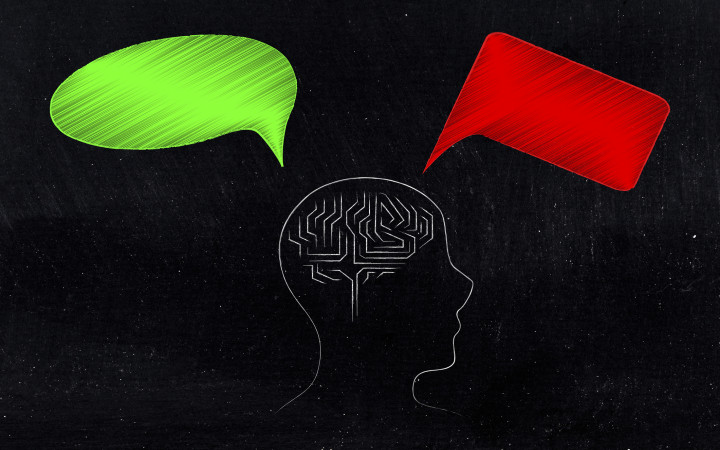Today’s Wonder of the Day was inspired by WonderTeam. WonderTeam Wonders, “What is Cognitive Dissonance?” Thanks for WONDERing with us, WonderTeam!
Do you have any strong beliefs? Many people’s views are very important to them. They may have ideas about morality. For some people, it’s politics or religion. But sometimes, people learn new information that tests their strong beliefs. What happens then?
That’s where today’s topic comes in. Cognitive dissonance is when a person’s beliefs, ideas, or actions oppose each other. This theory was developed by Leon Festinger. However, Festinger also explained that people have a need to keep their beliefs and behaviors in harmony. He believed that people dealt with their own cognitive dissonance in different ways.
How about an example? Many people have habits that oppose their beliefs. For instance, most people believe that greasy food is unhealthy. But many still swing through a fast food drive-thru for dinner. They do so knowing that greasy food is bad for them. This causes cognitive dissonance.
How do people deal with this disharmony? Most people make one of two choices. First, they might justify their habit. They do so by deciding their belief is less important in some situations. In this case, a person might decide they can only eat fast food on days they’re very busy. This means they can keep both the belief and the habit, even though the two disagree.
Second, they might focus on other beliefs that lower the impact of their fast food habit. They might think, “Sure, this greasy meal is unhealthy. But exercise is healthy! I can make up for this. I’ll go to the gym.” Now, they can go on eating a greasy meal. They just have to believe exercising later will reduce its impact.
There are endless examples of this kind of cognitive dissonance. Most people believe that smoking is bad for their health, but many still smoke. Everyone knows that cars are bad for the planet, yet many drive them daily. In each case, people make one of the same two choices. They lower the importance of their belief or use other beliefs to make up for the habit.
Do people ever end cognitive dissonance by changing a belief or habit? Yes, but rarely. These people stop eating fast food. They quit smoking. They ride the bus instead of driving. This is an effective way to end the disharmony. Still, most people won’t do it. Why? Because beliefs and habits are both very hard to change.
Cognitive dissonance can also be caused by two strongly held ideas. For example, science sometimes contradicts religion. What should a person do when a scientific finding is at odds with a deeply held religious belief? Others may hold very strong beliefs about politics or how the world should work. When they come across evidence contrary to their worldview, how might they deal with the disharmony?
Cognitive dissonance can also affect personal relationships. What happens when you’re faced with evidence that a person you trust told a lie? Do you stop trusting that person? Ignore the evidence in front of you? Something in between? You can see how cognitive dissonance can cause a lot of discomfort.
Have you ever had a hard time deciding what to believe? The best thing to do is look closely at the evidence and talk about it with a trusted adult. Cognitive dissonance can be very uncomfortable, but it’s something all people experience.
Standards: CCRA.L.3, CCRA.L.6, CCRA.R.1, CCRA.R.2, CCRA.R.4, CCRA.R.10, CCRA.SL.1, CCRA.W.2, CCRA.L.1, CCRA.L.2




